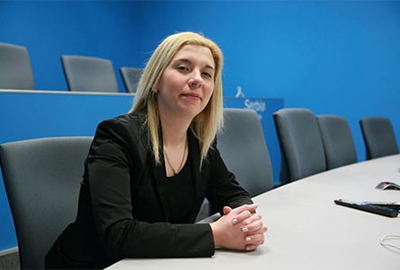Sensational findings may get audit clients' attention, but will they lead clients to ignore auditors' most critical warnings?
On the Frontlines: Why Sensationalism Is Bad for Internal Auditing
Blogs Maja Milosavljevic, CIA, CRMA Jun 16, 2021

There is an old story about a shepherd who falsely warned his colleagues that a wolf was approaching them. The shepherd raised the alarm so many times that when the wolf really was approaching, no one believed him. Something similar happens with internal auditors in many organizations.
Internal auditors come across different issues in their work. Sometimes the issues are very severe and critical for the organization; sometimes they are not. Regardless of how critical the findings identified are, it is tempting for auditors to present their findings as sensational things.
When internal audit's practices include presenting findings sensationally, with the chief audit executive's (CAE's) support, auditors may compete with each other to come up with better, more critical, and more sensational findings. Doing so can not only be self-promotional, it also may lead auditors to present less severe issues as more severe to keep clients interested in their audit work.
Sensationalistic findings become common for different reasons. The internal audit department may not be appreciated by the rest of the organization and use this approach to try to improve its position. In other organizations, internal audit's value-adding role may not be understood. The CAE may support and promote sensationalism to motivate the internal audit team members who are less motivated than their peers. Additionally, the organization's top management may appreciate and request such an approach.
Sensationalism can bring attention to internal audit's work in the short term, but is it a good and sustainable approach for auditors to take? In the IIA's Code of Ethics, Principle 2: Objectivity states:
"Internal auditors exhibit the highest level of professional objectivity in gathering, evaluating, and communicating information about the activity or process being examined. Internal auditors make a balanced assessment of all the relevant circumstances and are not unduly influenced by their own interests or by others in forming judgments."
Here are some guidelines to help auditors refrain from sensationalism, while complying with the International Standards for the Professional Practice of Internal Auditing and creating value for the organization.
Preserve Objectivity During Auditing Principle 2 requires auditors to keep an unbiased mental attitude and perform their work in an uncompromising manner. Auditors can comply with this principle by not accepting anything that may impair, or be presumed to impair, their independence and by disclosing any facts that may influence activities under review.
Build and Maintain Trustful Relationships With the Organization Auditors always should have in mind a long-term perspective and expectation that internal audit should add value to the organization. Building a trusting relationship with clients is not easy, but it can be lost in seconds and may never be restored.
Stick to the Facts The Standards require auditors' work to produce balanced and objective results. Their findings must be supported by sufficient, reliable, relevant, and useful documentation that would enable a similarly informed individual to come to the same conclusions.
Report on Audit Results Avoiding sensationalism is important in audit reporting. Being brave enough to report on difficult and sensitive issues, while finding the right words and ways to present the issues identified, is the heart of internal auditing. Sticking to the audit methodology when making professional judgments about the severity of findings is a great support to balanced audit reports.
Present Audit Results In addition to their written report, auditors are expected to present their audit results and speak in more detail in front of audiences such as managers, the audit committee, and the board. The keys to a successful presentation are good preparation, sticking to the facts that confirm the issues identified, and avoiding subjectivity.
Be a Change Agent, Not a Judge Internal auditors are expected to be change agents and trusted advisors. Their job is to focus on improving the organization and add value. This implies finding a root cause and giving recommendations on how to improve the situation, rather than making judgments about who is guilty or not.
Sensationalism is not a sustainable strategy for promoting internal audit, nor does it comply with the Standards and Code of Ethics. Auditors should not compromise their position and reputation in the organization to achieve short-term sensationalistic results, while endangering the long-term perspective.


